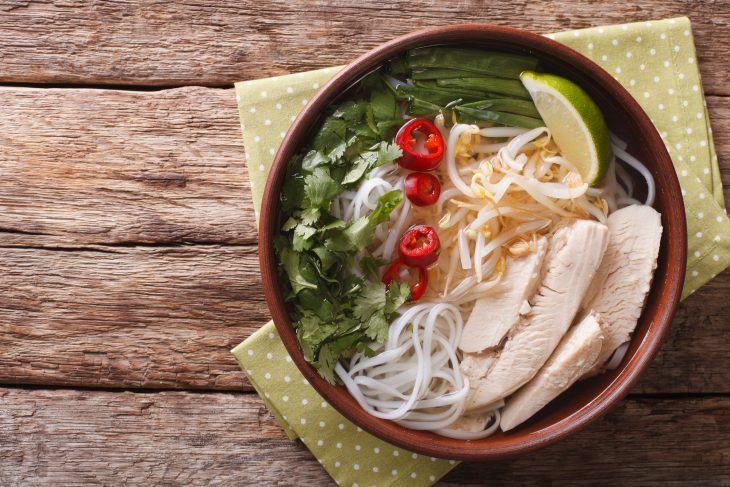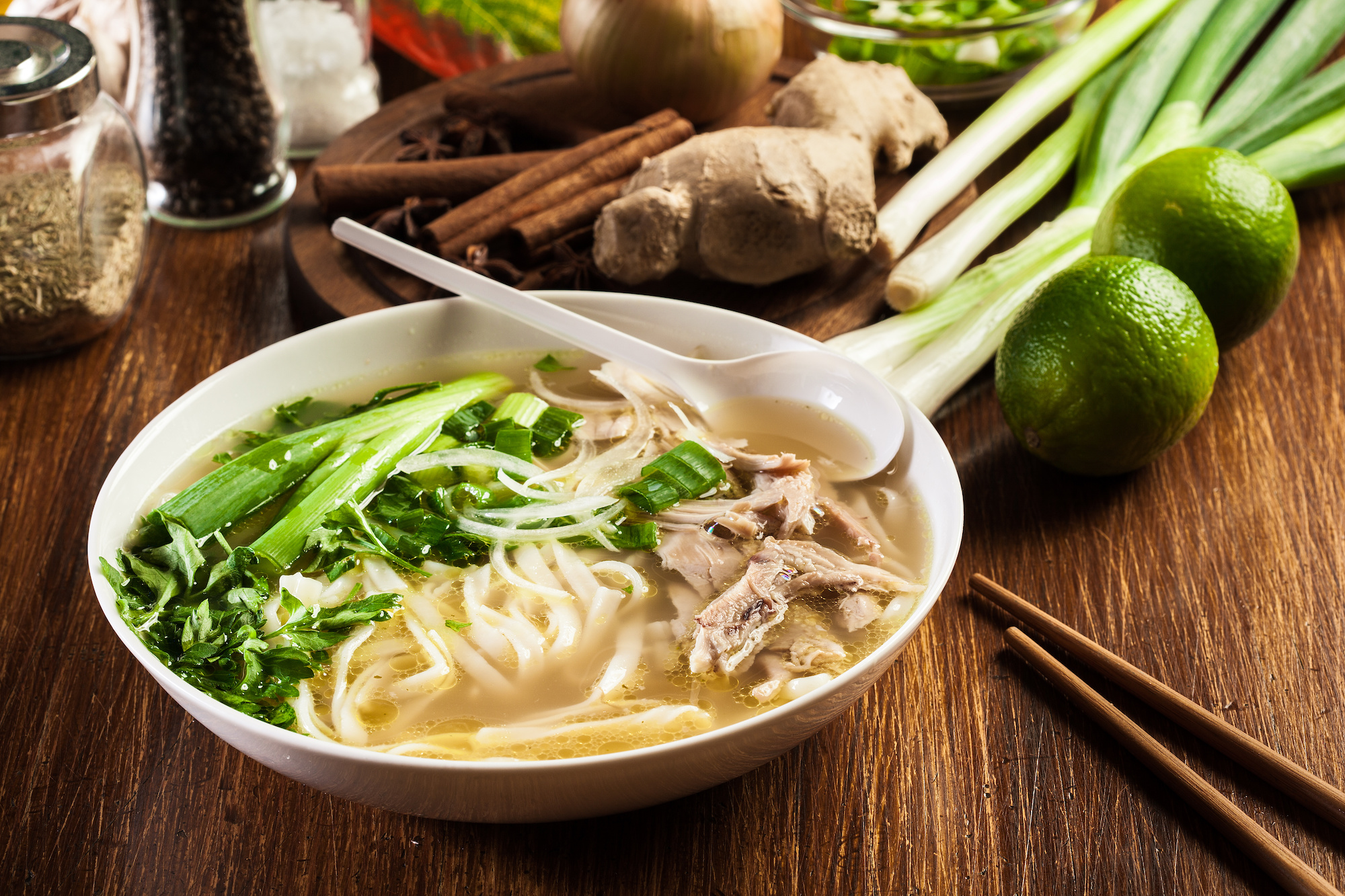
If you’re a fan of Vietnamese cuisine, you’ve likely heard of chicken pho, a flavorful and aromatic soup that has captured the hearts and taste buds of people around the world. Beyond its delicious taste, chicken pho also offers a range of nutritional benefits. In this article, we’ll explore the nutrition facts of chicken pho, shedding light on its ingredients, its health benefits, and why it has become a go-to choice for many food enthusiasts.
A Balanced Combination of Nutrients
Chicken pho is a harmonious blend of various ingredients that come together to create a balanced meal. It typically consists of:
- Chicken: Chicken serves as the primary protein source in chicken pho, providing essential amino acids necessary for the growth, repair, and maintenance of the body.
- Rice Noodles: Made from rice flour, these noodles offer a gluten-free alternative and are a good source of carbohydrates, supplying energy to fuel your daily activities.
- Broth: The flavorful broth, infused with herbs and spices, not only adds depth to the dish but also provides hydration and essential nutrients.
- Vegetables and Herbs: Fresh vegetables like bean sprouts, basil, cilantro, and lime add a refreshing touch while offering vitamins, minerals, and antioxidants.
Low in Calories, High in Flavor
One of the remarkable qualities of chicken pho is its ability to pack a punch of flavor without being excessively high in calories. A typical bowl of chicken pho contains approximately 350-400 calories, making it a satisfying and nourishing option for those seeking a wholesome meal.
Rich Source of Protein
Chicken pho is an excellent choice for individuals looking to incorporate more protein into their diet. A single serving of chicken pho can provide around 20-25 grams of protein, helping to support muscle growth and repair.
Immune-Boosting Properties
The combination of aromatic herbs and spices in chicken pho not only enhances its taste but also offers immune-boosting benefits. Ingredients like ginger, garlic, and onion have antimicrobial and anti-inflammatory properties that can aid in strengthening your immune system.

Hydration and Electrolyte Replenishment
Chicken pho’s broth base provides hydration and replenishes electrolytes, making it an ideal choice during hot summer months or after intense physical activity. The warm broth can also soothe a sore throat and provide relief from congestion during the cold season.
Supporting Bone Health
Chicken pho is a natural source of collagen, which is derived from simmering chicken bones and connective tissues. Collagen plays a vital role in maintaining healthy bones, joints, and skin.
Promoting Digestive Health
The inclusion of fiber-rich vegetables and herbs in chicken pho promotes healthy digestion. The fiber content aids in maintaining bowel regularity and can contribute to a healthy gut microbiome.
Versatility and Customization
Chicken pho offers endless opportunities for customization to suit individual preferences and dietary needs. Whether you prefer extra herbs, a squeeze of lime, or a dash of hot sauce, you can tailor your bowl of chicken pho to your liking.
Suitable for Various Dietary Preferences
Chicken pho caters to a wide range of dietary preferences and restrictions. With gluten-free rice noodles and the option to include or exclude certain ingredients, such as peanuts or seafood, chicken pho can be enjoyed by individuals with different dietary requirements.

Conclusion
Chicken pho is not only a culinary delight but also a dish that nourishes the body with its wide array of nutrients. From protein to immune-boosting properties, this Vietnamese delicacy offers more than just a satisfying meal. So, next time you’re craving a delicious and wholesome bowl of soup, consider chicken pho.
Frequently Asked Questions (FAQs)
Is chicken pho suitable for vegetarians or vegans?
No, chicken pho is traditionally made with chicken as its primary protein source. However, there are vegetarian or vegan versions available that use plant-based alternatives like tofu or mushrooms.
Are there any gluten-free options for chicken pho?
Yes, chicken pho can be made gluten-free by using rice noodles instead of wheat noodles. Ensure that the broth and other ingredients are free from gluten as well.
Can I make chicken pho at home?
Absolutely! Chicken pho can be prepared at home with a little bit of effort. There are numerous recipes available online that guide you through the process, allowing you to customize the flavors to your liking.
Is chicken pho spicy?
Chicken pho is typically not spicy, but the level of spiciness can be adjusted by adding condiments like chili sauce or Sriracha according to your preference.
Can chicken pho be frozen and reheated?
Yes, you can freeze chicken pho for later consumption. It’s recommended to store the broth and noodles separately to maintain the desired texture. When reheating, ensure that the soup is heated thoroughly before serving.
Note: The nutrition facts provided in this article are general estimates and may vary depending on the specific recipe or restaurant preparation methods.
Was this page helpful?
Our commitment to delivering trustworthy and engaging content is at the heart of what we do. Each fact on our site is contributed by real users like you, bringing a wealth of diverse insights and information. To ensure the highest standards of accuracy and reliability, our dedicated editors meticulously review each submission. This process guarantees that the facts we share are not only fascinating but also credible. Trust in our commitment to quality and authenticity as you explore and learn with us.


